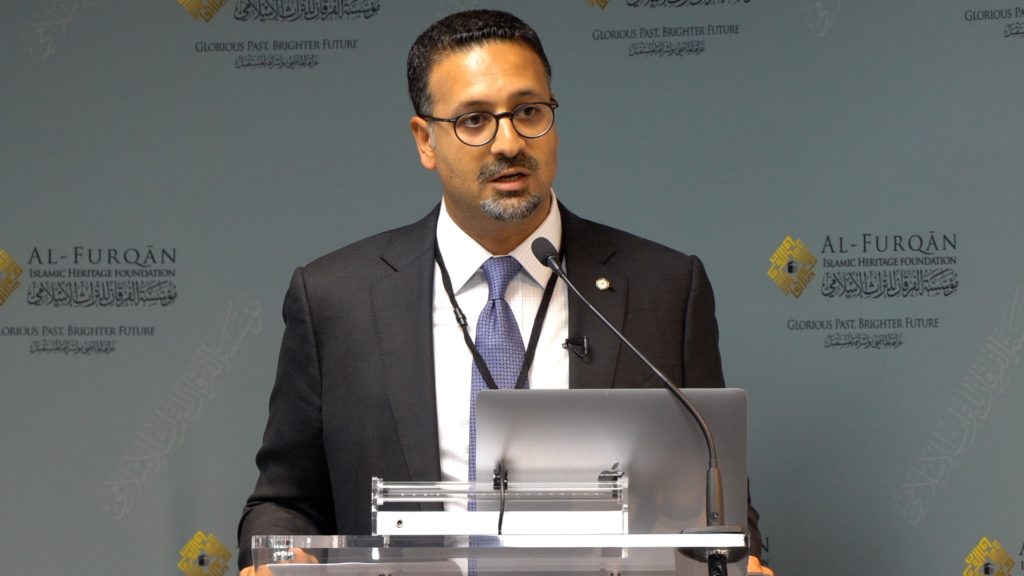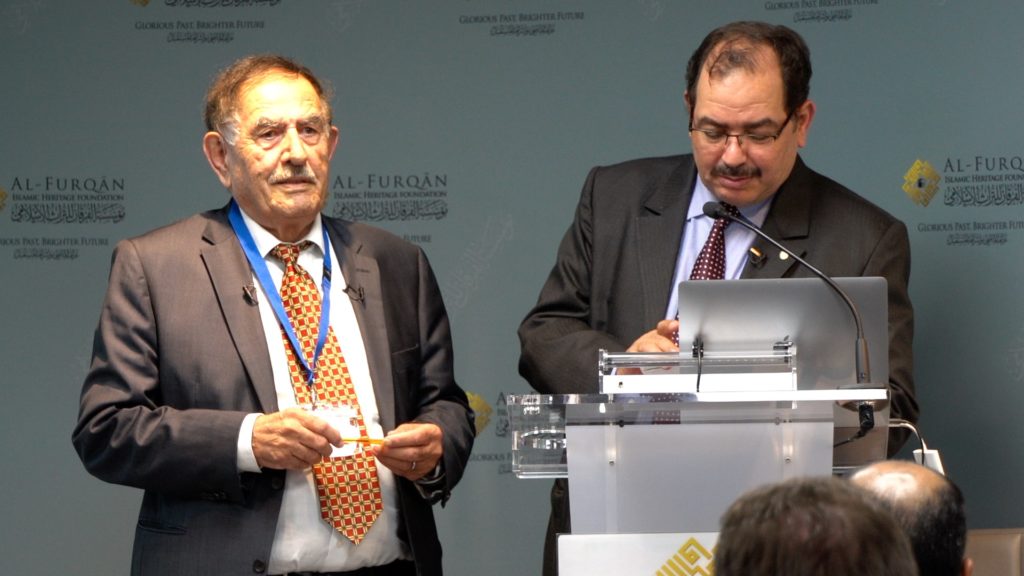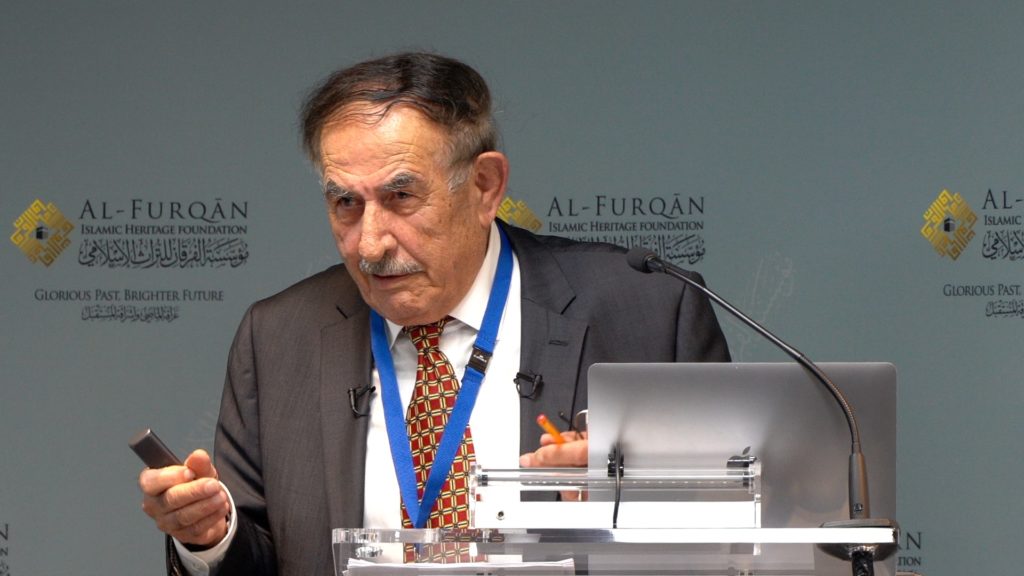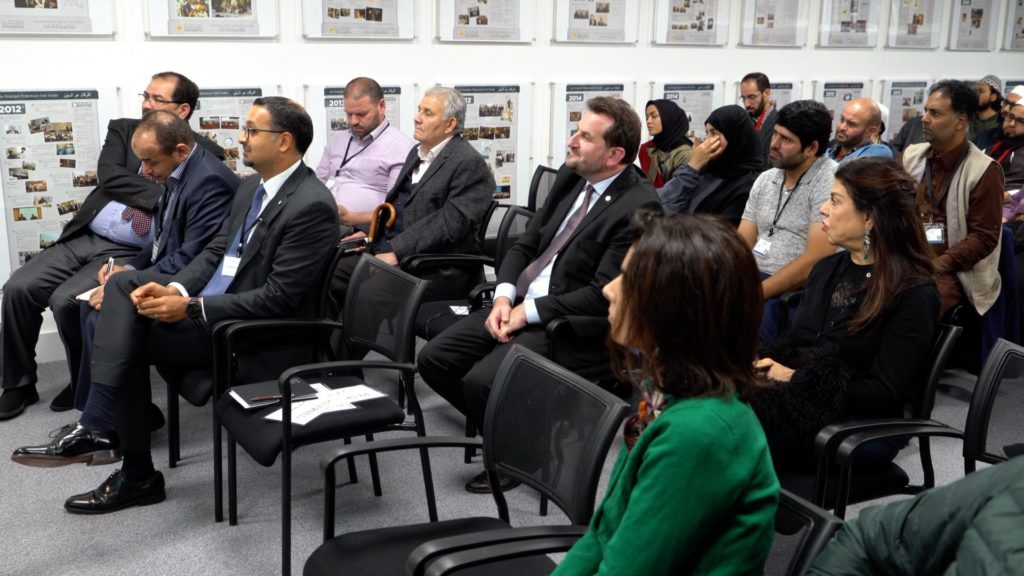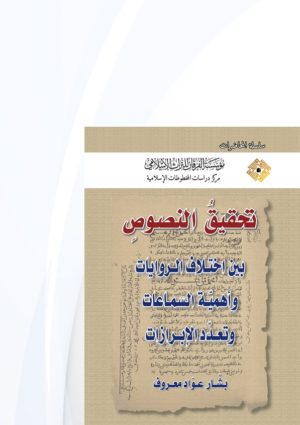As part of Al-Furqān Islamic Heritage Foundation’s seasonal lecture series, the Centre for the Study of Islamic Manuscripts organised a public lecture under the title “The Critical Edition of Texts between Different Narrations, the Importance of Auditions, and Multiple Versions”, delivered by Professor Bashar Awwad Marouf. The lecture took place on Wednesday, 23 October 2019 at the lecture hall in Al-Furqān’s London headquarters.
The session was moderated by Mr Mohamed Drioueche, Head of Projects & Publications at Al-Furqan Islamic Heritage Foundation, who welcomed the audience and invited Mr Sharaf Yamani, Member of Al-Furqan’s Board of Directors, to deliver his welcoming speech. Mr Sharaf began by conveying the greetings and welcome of H.E. Shaykh Ahmed Zaki Yamani, Chairman of Al-Furqan Islamic Heritage Foundation. He also thanked the evening’s guest, the learned Professor Bashar Awwad Marouf, for honouring the Foundation by delivering his lecture. He then gave a brief summary of this pioneering lecture’s topic, and an overview of the lecturer’s scientific journey.
Before inviting Professor Bashar Awwad Marouf to deliver his lecture, Mr Mohamed Drioueche gave a detailed presentation of the lecturer and the evening’s lecture.
The lecturer addressed three novel issues that had escaped the attention of researchers and critical editors:
First: differences in book order and content, between narrators of books authored in the second and third Hijri centuries; this, despite the author being one and the same, and the narrators being his most trustworthy and competent students. The lecturer attempted to explain this phenomenon in the authorship movement of Muslim Arabs, and elucidate its reasons, and outcomes. The lecturer presented the “Muwaṭṭa’ ” of Imām Mālik b. Anas (d. 179AH / 795CE) as an example, after he had gathered several extant narrations of this work, which differ in the order of volumes and chapters; the number of prophetic traditions (ḥadīth)—whether elevated to the Prophet (peace be upon him) (marfū‘) or attributed to a Companion (mawqūf); the fatwas issued by the Companions and the subsequent generation, al-Tabi’ūn; and the fatwas by Imām Mālik himself.
Second: examining the importance of the auditions recorded on the handwritten copies by eminent scholars, and whether these confer extra weight to the manuscript copy in terms of correctness of the information within, as well as determining its position vis-à-vis other copies, whether superior or otherwise. In addition, exploring the difference between audition of books by scholars, and a scholar reading and then adding commentary to a book, whether to correct or signal disagreement; and the resulting benefits of both these actions.
Third: the ways of dealing with the multiple versions of the same book in the process of conducting critical edition, and the best approach to be adopted. Indeed, the author in the age of manuscripts—as is the case today—may have revisited his work, with further content addition, deletion, and refinement. While some copyists transcribed the early versions, others transcribed the later ones, and as a result, manuscript copies would differ in containing more material or less. This required the critical editor to adopt a clear position in this respect.
Professor Bashar Awwad Marouf was successful in providing effective solutions to these complicated problems, stemming from his extensive and deep experience, spanning more than a half century in the critical edition of heritage texts, which resulted in publishing over 300 volumes, representing his authored works and critical editions.
After finishing his presentation, a long and in-depth discussion ensued, with important questions being asked on the topics raised in the lecture. The audience was graced by the presence of a number of scholars, researchers, and students.
The audience benefitted greatly from this pioneering lecture, and the follow-on discussion, due to the novel and useful opinions presented by the lecturer in his typically beautiful manner and gracious approaches to research and critical edition that are in harmony with the correct and ideal method of securing benefit.
Related Video


